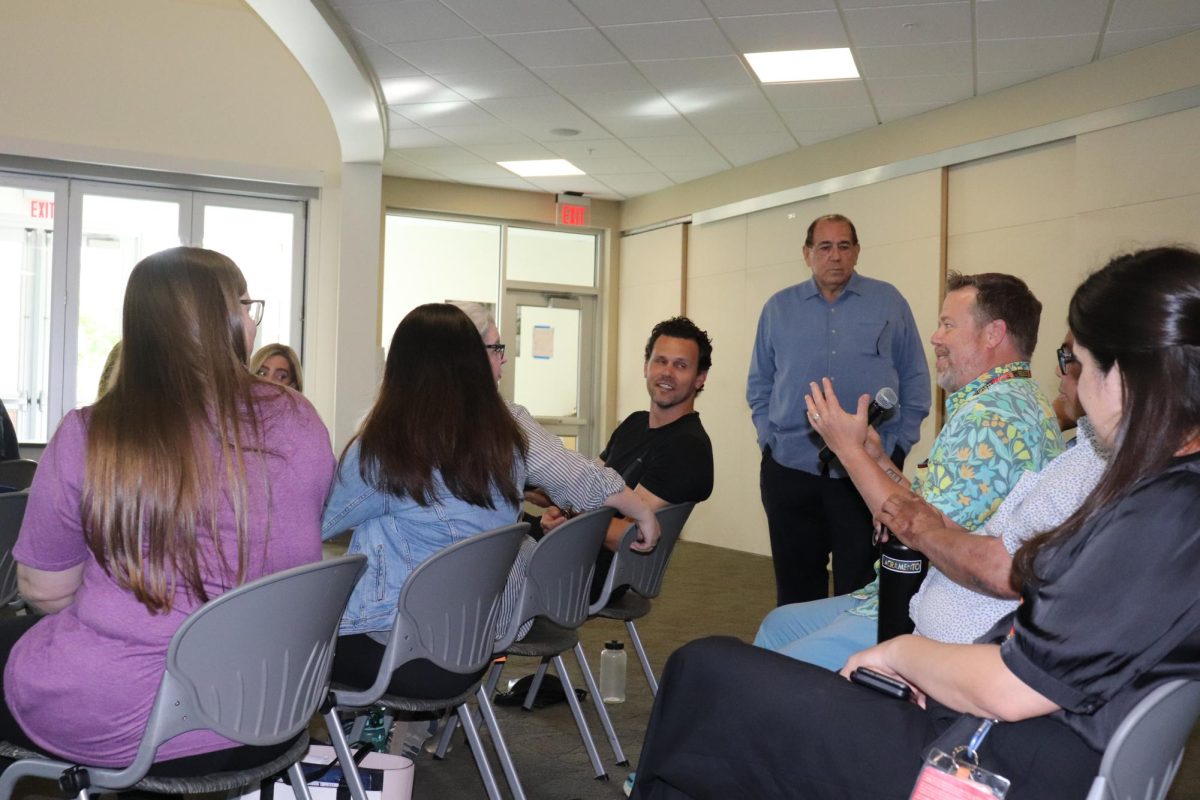Loss of sleep may cause greater damage in the long run
May 3, 2014
While the health and academic issues concerning college students and lack of sleep, especially when it comes to cramming for exams, are not a new conversation, a new study published in the Journal of Neuroscience on March 18 brings a possible new focus to the issue.
According to the new study, done by neuroscientist Sigrid Veasey from the University of Pennsylvania, missing sleep may lead to possible brain damage.
“In general, we’ve always assumed full recovery of cognition following short- and long-term sleep loss,” Veasey said in a statement on the Penn State medical website. “But some of the research in humans has shown that attention span and several other aspects of cognition may not normalize even with three days of recovery sleep, raising the question of lasting injury in the brain. We wanted to figure out exactly whether chronic sleep loss injures neurons, whether the injury is reversible, and which neurons are involved.”
Veasey said that the myth of catching up on sleep on weekends or other times to fill a sleep debt is just that, a myth.
Students can improve their drowsiness by practicing good “sleep hygiene,” said Cosumnes River College Head Nurse Michelle Barkley.
“Don’t go to bed unless you are sleepy. Do something relaxing, don’t do something that’s going to stimulate your mind and make you worry,” Barkley said. “If you’re not asleep after 20 minutes, get out of bed. You want to induce sleep not get yourself all hyped up. A general rule is don’t have any caffeine eight hours before bedtime. Alcohol isn’t a good thing to have before you go to bed, because it doesn’t allow you to sleep, it doesn’t give you sound sleep.”
Commonly students say they don’t have the time in their schedule to get enough sleep at night. Barkley said these students should take short naps, or risk ruining their sleep pattern.
“It’s a lot of school, studying and volunteer time,” said Dana Buenaflor, 21, a nutrition major. “It’s just that I try to take advantage of [sleep] when I can. A quick, little power nap between classes in the car would help.”
Veasey’s study was conducted on mice, but biology professor Andrea Salmi said there are parallels.
“[Researchers] seem to have been interested in the study because of things they’d seen in humans,” Salmi said. “What this study with the mice was showing, is that inside nerve cells, at this one part of the brain that’s critical to keep us alert, in that part of the brain they saw a certain protein to protect cells and keep them healthy. That protein, when you didn’t get enough sleep for a long period of time, decreased radically and that led to damage that actually led to cell suicide.”
There is a great effect that the death of these brain cells brings, Salmi said.
Conducting the research on mice was only the beginning for the research.
Veasey’s next step is to study the brains of deceased shift workers, to further find evidence of the possible damage that a consistent loss of sleep can have on the human brain.
“A critical part of your brain that’s being really alert and attentive could be permanently damaged,” Salmi said. “So I would expect, what we would see as time went on, is that we would just be less alert. It would be hard for us to pay attention to things, and that would make learning hard, which would be really damaging for all of us, especially students.”
This may explain what many students, such as 19-year-old computer science major Kelly Lopez, experience after a late night.
“I lose focus when I’m in class, I’m asleep all the time, I don’t understand what teachers are saying sometimes because I don’t really pay attention because I’m always tired,” Lopez said. “I’m actually failing my classes due to lack of sleep.”
Salmi said she reminds her students not to cram the night before an exam.
“You really have to get a good night sleep so you come in here with your brain at optimal alertness. You just shouldn’t stay up all night. You’re just going to negate all the work you did in advance,” Salmi said. “It’s really an important study to help us realize that sleep isn’t an optional thing. It’s critical to our well-being.”





